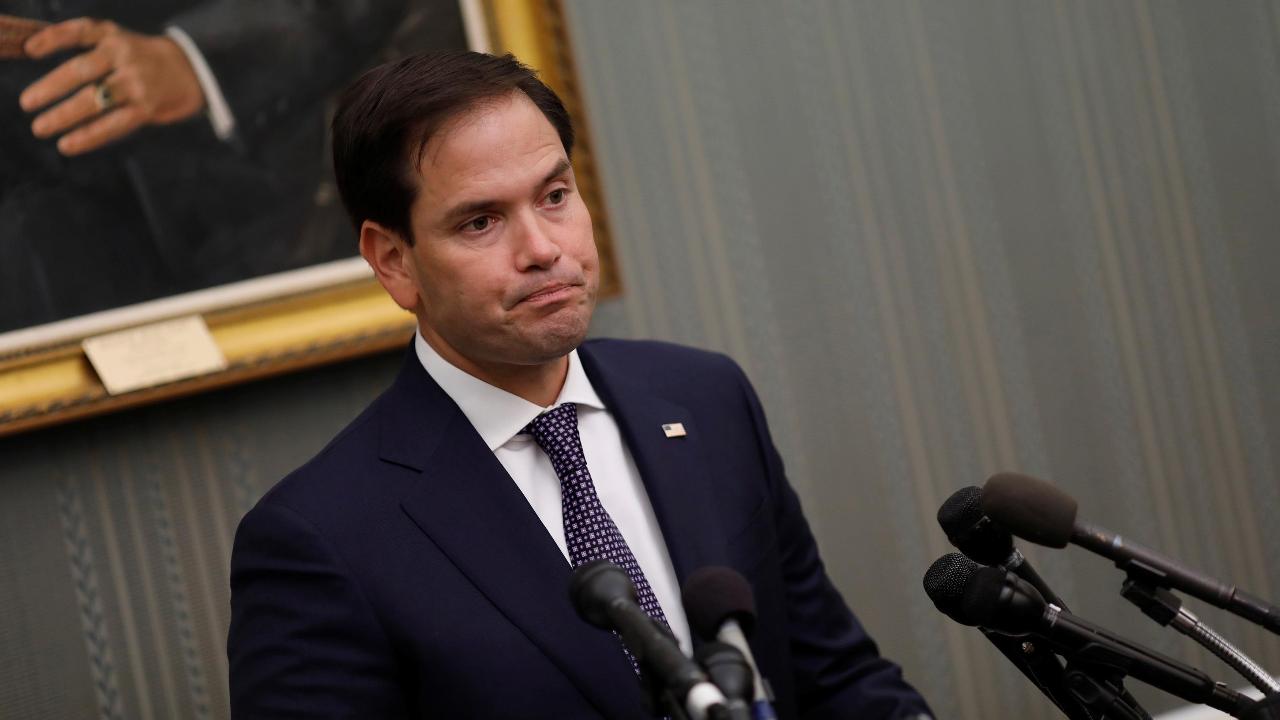Marco Rubio backs proposal to limit stock buybacks, a frequent target of Dems
Sen. Marco Rubio endorsed a proposal on Tuesday to discourage corporations from buying back their own stock from investors – a practice that has become a frequent target of Democrats.
The plan backed by Rubio encourages domestic investment by making full and immediate expensing permanent "as a way to discourage companies from pursuing share repurchases." Rubio previously suggested there should be no tax advantage for a stock buyback, vs. other forms of capital allocation.
Repurchases became controversial after major U.S. companies laid off employees, while simultaneously using savings from the 2017 Tax Cut and Jobs Act to make share repurchases.
The Florida Republican joins high-profile Democrats, including Senate Majority Leader Chuck Schumer of New York and Sen. Bernie Sanders (a Vermont independent who caucuses with Democrats), in pushing for legislation to curtail the ability of companies to purchase stock buybacks.
Rubio is the chairman of the Small Business and Entrepreneurship Committee, which released the report.
“Tax policy changes to end this preference might, on their own, increase investment by shifting shareholder appetite for capital return,” the report said. “To the extent structural incentives remain for capital return, an increased tax rate on repurchases might raise revenue to finance other incentives for capital investment like full expensing.”
Between 2015 and 2017, the five biggest U.S. tech groups -- led by Apple and Microsoft -- spent $228 billion on stock buybacks and dividends, as reported by The Financial Times. During the same time period, the top five Chinese technology companies spent a comparative $10.7 billion.
The report, which is part of a broader initiative on U.S.-China relations and competitiveness, argued that more U.S. companies are utilizing stock buybacks amid falling investments and rising prices of less productive assets.
“Cash spent on share repurchases is not cash spent on capital investment, though the degree to which a relationship exists may vary by sector and firm type,” the report said.
It's not the first time that Rubio has criticized the tax overhaul that he voted for (the report called it a "missed opportunity," suggesting it had made American workers less valuable, while also prioritizing higher profits).
CLICK HERE TO GET THE FOX BUSINESS APP
"There is still a lot of thinking on the right that if big corporations are happy, they're going to take the money they're saving and reinvest it in American workers," Rubio said in an April interview with The Economist. "In fact, they bought back shares, a few gave out bonuses; there's no evidence whatsoever that the money's been massively poured back into the American worker."




















